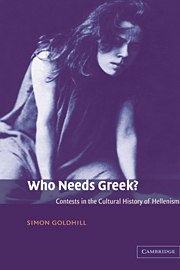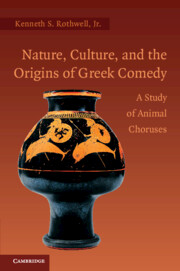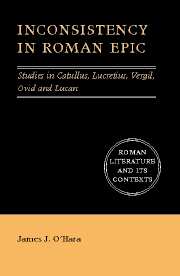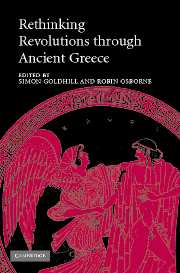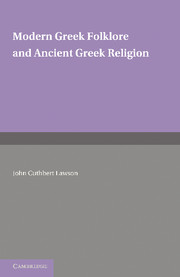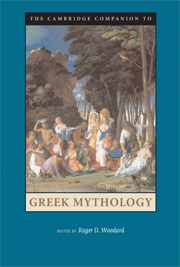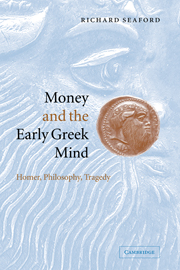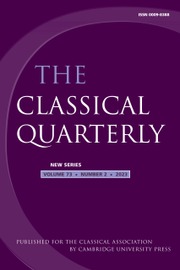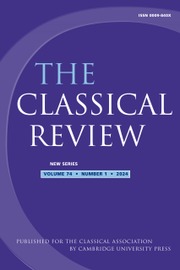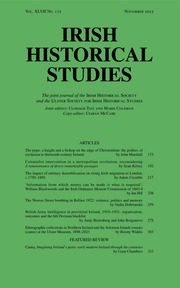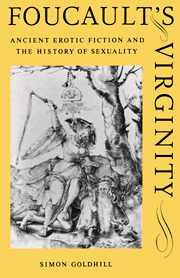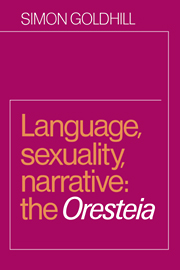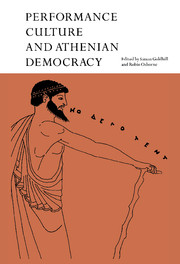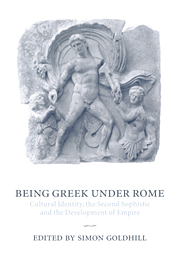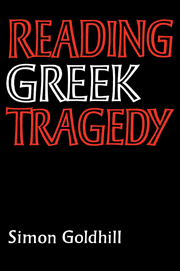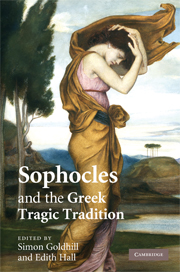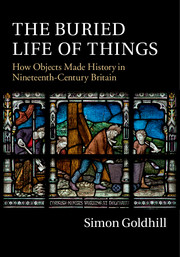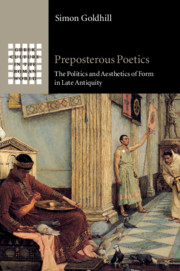Who Needs Greek?
Contests in the Cultural History of Hellenism
£90.00
- Author: Simon Goldhill, University of Cambridge
- Date Published: April 2002
- availability: Available
- format: Hardback
- isbn: 9780521812283
£
90.00
Hardback
Other available formats:
Paperback
Looking for an inspection copy?
This title is not currently available on inspection
-
Does Greek matter? To whom and why? This interdisciplinary study focuses on moments when passionate conflicts about Greek and Greek-ness have erupted in both the modern and the ancient worlds. It looks at the Renaissance, when men were burned at the stake over biblical Greek, at violent Victorian rows over national culture and the schooling of a country, at the shocking performances of modernist opera - and it also examines the ancient world and its ideas of what it means to be Greek, especially in the first and second centuries CE. The book sheds light on how the ancient and modern worlds interrelate, and how fantasies and deals, struggles and conflicts have come together under the name of Greece. As a contribution to theatre studies, Renaissance and Victorian cultural history, and to the understanding of ancient writing, this book takes reception studies in an exciting alternative direction.
Read more- Deals with an exciting and polemical theme which will engage a broad audience
- Presents a significant amount of original scholarship in a lively style and manner
- Contains wonderful stories, fascinating pictures and an extraordinary range of material
Reviews & endorsements
'… Goldhill enlists his reader in an argument which is scholarly, theoretical and thoroughly absorbing … the overwhelming contribution that this book makes to textual studies is clear. Ultimately Who Needs Greek? demonstrates just how violent the cultural politics of identity are, and what is at stake if we forget that.' English
See more reviews'Irony and playfulness are much in evidence throughout the pages of this delightful book … it is all the more impressive that the author leaves us with a renewed sense of the genuine seriousness of contests over classical Greek language and culture in the long passage to modernity.' The Classical Review
'The writing is vivid and the narration forceful … twenty illustrations enliven a text which [Goldhill] clearly wrote with relish as well as commitment.' Journal of Hellenic Studies
'… fascinating and illuminating study … anyone interested in reception studies should read this account of moments in cultural history …' Journal of New Theatre Quarterly
'… a passionate, committed but mature exploration of what Greek has meant historically; and, more pertinently, a vision of what it can and even should mean now and for the future … this is an exemplary book.' Gnomon
'Goldhill's elegant and witty writing … made the reading highly pleasurable. This is surely the most innovative book on the classical tradition to cross my desk, and one from which I will continue to draw inspiration, as well as information. … a carefully constructed, deeply researched, and elegantly argued text. It asks some extremely important questions … and the answers it gives are fresh, concise, and often amusing. … Goldhill has made an impressive, innovative and convincing case that we do, as a society, need Greek.' Hermathena
Customer reviews
Not yet reviewed
Be the first to review
Review was not posted due to profanity
×Product details
- Date Published: April 2002
- format: Hardback
- isbn: 9780521812283
- length: 336 pages
- dimensions: 236 x 158 x 22 mm
- weight: 0.582kg
- contains: 20 b/w illus.
- availability: Available
Table of Contents
List of illustrations
List of abbreviations
Introduction: shaking the foundations
1. Learning Greek is heresy! Resisting Erasmus
2. Becoming Greek, with Lucian
3. Blood from the shadows: Strauss' disgusting degenerate Elektra
4. Who knows Greek?
5. The value of Greek. Why save Plutarch?
Conclusion: rainbow bridges
Works cited
Index.
Sorry, this resource is locked
Please register or sign in to request access. If you are having problems accessing these resources please email [email protected]
Register Sign in» Proceed
You are now leaving the Cambridge University Press website. Your eBook purchase and download will be completed by our partner www.ebooks.com. Please see the permission section of the www.ebooks.com catalogue page for details of the print & copy limits on our eBooks.
Continue ×Are you sure you want to delete your account?
This cannot be undone.
Thank you for your feedback which will help us improve our service.
If you requested a response, we will make sure to get back to you shortly.
×
